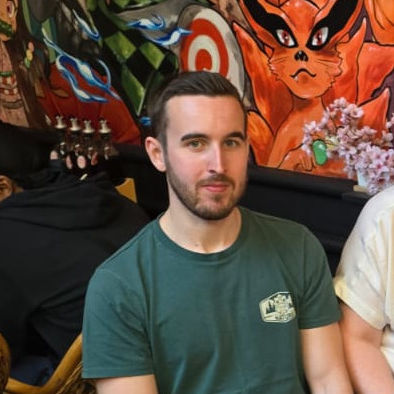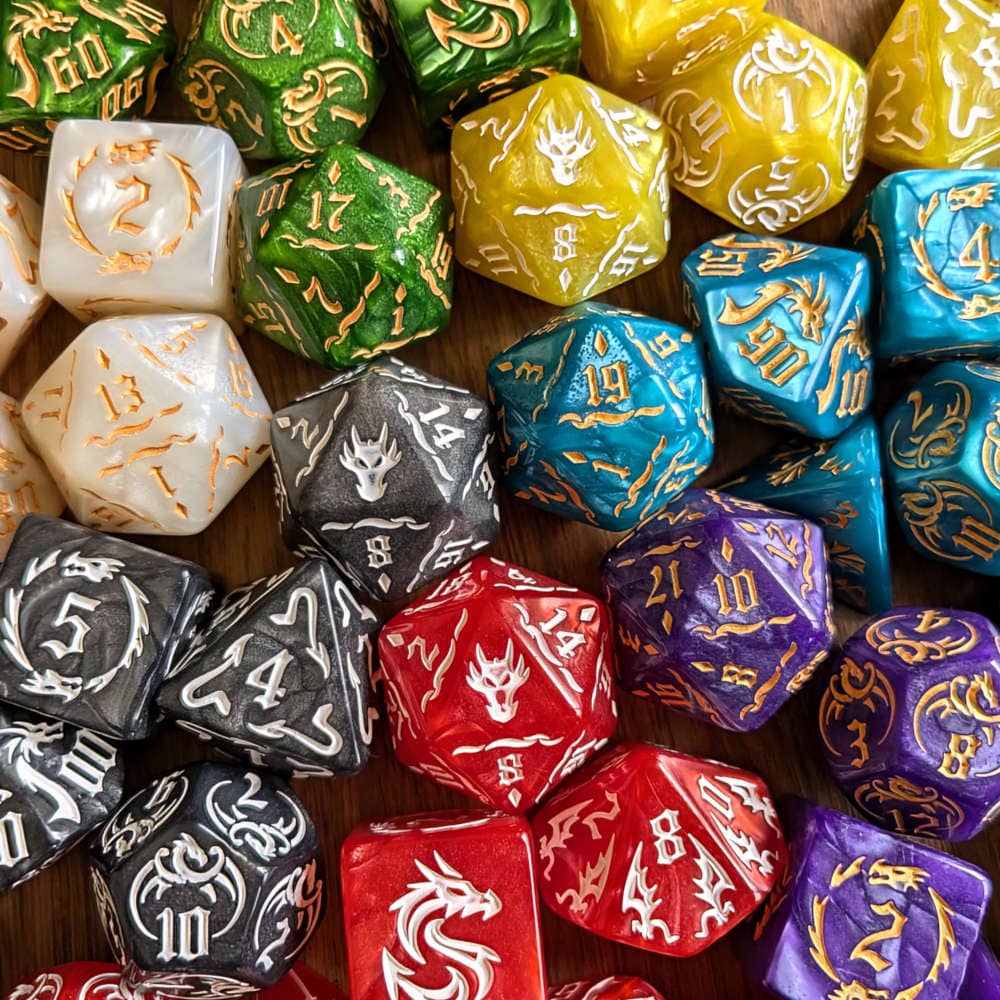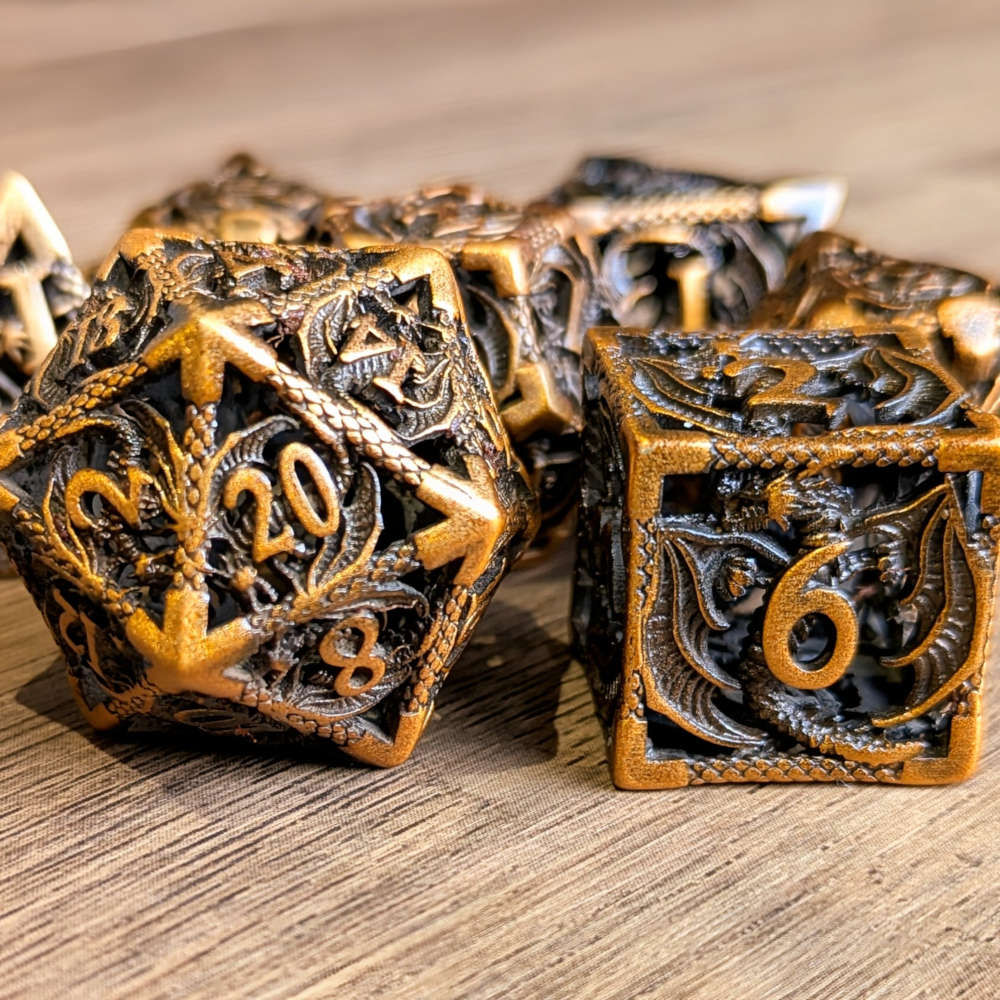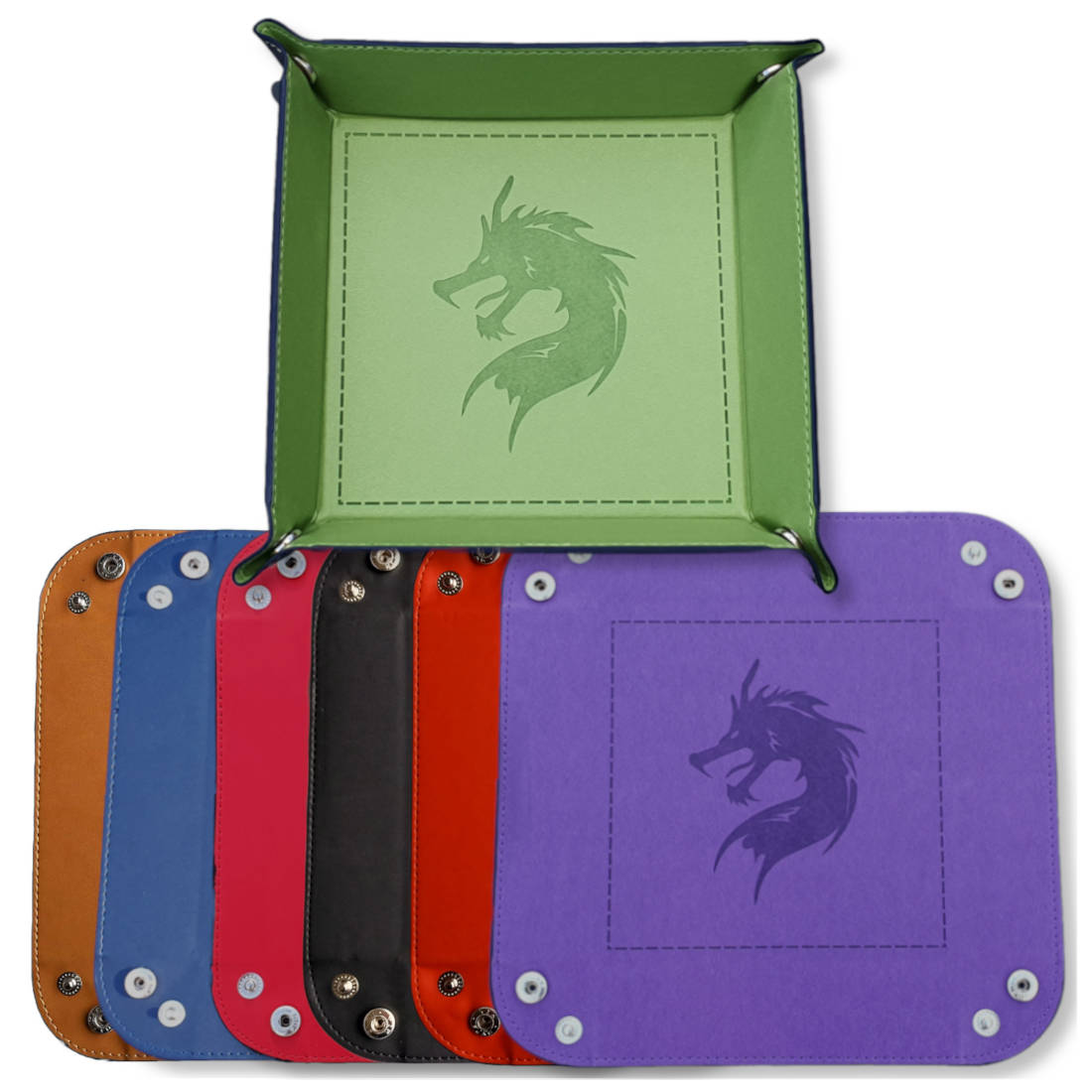How Dungeons & Dragons is good for mental health

Dungeons & Dragons (D&D) isn’t just about slaying dragons and amassing loot. It’s a powerful tool that can positively impact your mental health. Beyond all the dice rolls and fantastical quests, D&D offers a unique blend of storytelling, creativity, social interaction, and problem-solving that can contribute to improved well-being.
In this article, we’ll explore some of the potential therapeutic benefits of D&D and TTRPGs and discuss how the tabletop game we all know and love can be a source of mental and emotional enrichment.
Does D&D help with mental health?
Yes, Dungeons & Dragons has been found to have a positive impact on mental health for many people - not just in the context of clinical psychology or for people in therapy.
Charities such as Games Aid and Take This recognise the potential mental health benefits of D&D. They hail its role in improving social skills, facilitating the processing of trauma, and enhancing responsiveness to therapy.
Take This, a mental health organisation focused on the game industry, aptly states: “by routinely reinforcing our connections, we help to mitigate the negative effects of daily stressors that drain our physical and mental health.”
But it’s not just charities and clinical psychologists that praise the profound impact that D&D can have on mental health. One powerful testament to the therapeutic potential of D&D comes from the experience of Charlie Brown, a tabletop gamer who battles depression, anxiety, and borderline personality disorder:
“All my doubts fall away when I sit down and we begin playing… adventures live in your heart forever. Even if your arms can’t carry the sword, or you can’t cast the magic, it’s still inside of you. You can go live those experiences with the world. Even if that world is make-believe”.
What are the psychological benefits of D&D?
Engaging in D&D can offer a wealth of psychological benefits that contribute to overall well-being and mental health. The immersive and collaborative nature of the game fosters personal growth and provides a safe space for people to explore and develop their skills.
Baker, Turner, and Kotera’s 2022 paper explores the evidence that “playing RPGs such as D&D can aid in friendship and relationship maintenance, mitigation of social anxiety, improved social skills, reducing stress, alleviation from mental health challenges, and providing connection with others”.
While finding a D&D group can be tricky, it’s worth it. Some of the psychological benefits of playing D&D include:
Increased self-esteem and confidence
D&D enables players to step into the shoes of heroic characters, allowing them to experience a sense of accomplishment and empowerment as they embark on epic quests. As Dr. Megan Connell, a licensed psychologist and author, emphasises, “It’s a great place to practice skills and step into those aspirational traits to be the person you want”.
Ability to express yourself and your needs
D&D provides a creative outlet for self-expression, allowing players to explore different aspects of their personality and communicate their needs and desires in a supportive environment. It also offers a break from day-to-day responsibilities, allowing us to become a powerful wizard, a skilful ranger, or play as a character who has a dragon pet.
Improved social skills
Fundamentally, D&D is a game based on teamwork, collaboration, and cooperation. Although it is possible to play D&D solo, or play D&D with two people, most groups are made of 3-6 players. This gives you the opportunity to practice effective interpersonal skills and learn to navigate social dynamics, promoting more confident and meaningful interactions in life.
Stronger creative thinking and problem-solving skills
Role-playing hones creative thinking and requires your imagination, especially when solving problems. Whether that’s a trap or riddle in the midst of a dungeon, or you are facing a particularly tough combat encounter, D&D provides an outlet for creativity and out-of-the-box thinking.
Provides a sense of community and belonging
In the right group, D&D fosters a sense of belonging within a group of like-minded people who share common interests. Having a strong community provides a place of emotional support, reduces feelings of loneliness and isolation, and nurtures a positive sense of identity. Tabletop gaming also provides a safe space to work through personal challenges and process trauma.
Develops your ability to synthesise information
Role-playing groups typically feature a cast of diverse characters, which provides players an opportunity to hear situations from multiple viewpoints, enhancing empathy as it encourages the integration of lots of different strengths and weaknesses.
Can D&D be used as therapy?
Yes, D&D can be used in therapy, and there are many clinical psychologists and charities that use it to help people with mental health issues.
Henrich and Worthington’s 2023 paper explores the increasing public interest in D&D. While the literature surrounding therapeutic role-play is well-established, the evidence surrounding D&D is less clear. However, the sea of anecdotal stories and some of the literature emerging is promising.
The Game to Grow Method, a book authored by Kilmer, Davis, Filmer, and Johns, conceptualises D&D as a method of group intervention that can be layered on top of established intervention techniques. In other words, more and more psychologists are looking to D&D and other TTRPGs to improve responsiveness to therapy. In their words: “when facilitated by a trained professional, TA-RPGs are a powerful tool for insight, growth, and change for individuals and communities”.
What makes D&D work so well in therapy?
When D&D is created with neurodiversity inclusion in mind, it can help people open up and explore aspects of themselves that might not have been possible before. There are four key reasons why D&D has gained recognition as a powerful tool in therapeutic settings:
- D&D is collaborative: the foundation of the game is built on collaboration, communication, and problem-solving among players. These attributes mirror the dynamics of healthy real-world relationships and group interactions, making it an excellent platform for fostering social skills.
- D&D lets you play a fantasy character: players have the freedom to create their own character, allowing them to explore different aspects of themselves in a safe and imaginative context. This encourages self-reflection and helps individuals experiment or try something new.
- D&D is a low-stakes, fun environment: the inherently fictional nature of D&D allows players to try things, make mistakes, and face challenges without the high stakes of reality, making it a less intimidating environment for personal growth.
- D&D helps people bond and build friendships: shared experiences within the game build camaraderie, strengthen connections, and offer a space for players to forge meaningful friendships. These bonds can even extend beyond the table.
In therapy, these factors converge to create a therapeutic space that is engaging, safe, and conducive to personal growth. D&D can offer a platform for participants to explore and address various aspects of their mental health while enjoying an immersive world. The shared narratives, camaraderie, and emotional exploration inherent in D&D align seamlessly with the goals of therapy, making it a valuable tool for mental health professionals and participants alike.
Please note: while Dungeons & Dragons can offer valuable benefits for mental health, it’s important to remember that it does not replace professional support or therapy. Although it can provide a social, emotional, and creative outlet, those struggling with mental health issues should seek professional help.
Additionally, it’s important to understand that the role of a Dungeon Master (DM) is not that of a mental health professional. While a DM can create a supportive and inclusive gaming environment, they are not equipped to provide therapeutic interventions for mental health issues.
As you venture forth into the captivating realms of D&D, may you find solace, camaraderie, and a sense of accomplishment. If you’re looking to enhance your tabletop experience, explore our range of D&D dice sets and tabletop accessories that can add an extra layer of magic to your adventures.





